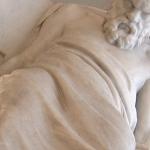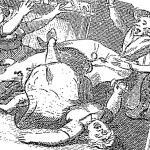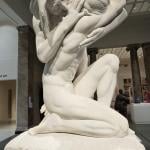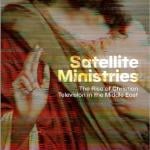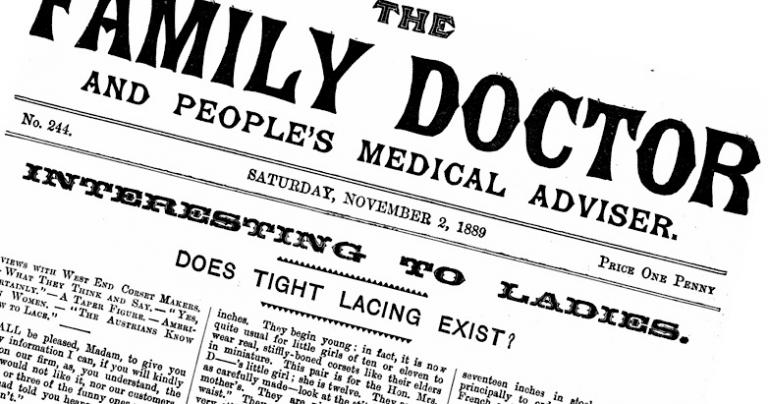 My dear mom liked to collect very old books that were splendidly, terribly bad. She has a wonderful reading voice with great books, but she came into glory when she read bad literature. Mom once read a Christian novel from the Edwardian era that had gangsters saying gangster-things like “Fork over your cabbage.” People had eyes that were “twin pools.” We laughed . . . Hard.
My dear mom liked to collect very old books that were splendidly, terribly bad. She has a wonderful reading voice with great books, but she came into glory when she read bad literature. Mom once read a Christian novel from the Edwardian era that had gangsters saying gangster-things like “Fork over your cabbage.” People had eyes that were “twin pools.” We laughed . . . Hard.
Perhaps the most endless entertainment came from books of “science” from by-gone days. Mothers were chastised from not using “certified milk” when they resorted to the crudity of breast feeding. The causes and (often) cures of most diseases could be found in the best of these guides. One of my favorites had instructions on how to keep bees, cure cancer, and practice practical dentistry.
All funny, but only because we knew the science was wrong and the advice lunatic. Yet the men (they were always men) had the proper impressive credentials. They could endlessly cite just why government approved milk was better than the mother’s and if they were wrong, they were at least confident. People bought the books and did what they said, often to real harm.
Mom made the point, every so often, that experts are valuable, but that they are not always right. When pastors she knew warned against smoking by blowing cigarette smoke through a hankie and showing young people what was left on the cloth, they were mocked by doctors. “Napkins are not like lungs! Smoking helps keep weight in check!”
Yet here is the problem. Rational people must give special weight to experts. Someone who has gained the best knowledge humankind has on a topic is not just guessing. He or she is giving the best information we have. Yet people err, even scientists! The scientists took money from Big Tobacco to find what Big Tobacco wanted them to find. Were they scientists when they scammed? Or just scam artists?
Not every error made by experts is caused by corruption. Sometimes experts have good intentions, do their best and are wildly wrong. What if a local general practitioner, the expert in his small town, read the “bought” studies on tobacco and passed on the best advice he had to his patients? “Smoke moderately to help control weight.” Wasn’t he still a doctor when he gave this wrong advice? What about someone who pulled one of the books off the shelf my mom liked to quote? Did the doctor stop being a doctor the moment he read from such a text?
This matters, because syncopatic people will tell a ruler (say Stalin) that he can do no wrong. This happens even in some Christian institutions where promotion is based on who can most effusively flatter the boss. The boss can never be wrong, so even when he is, blame is shifted or in extreme cases, the error is pushed off to the boss acting privately. The leader cannot be wrong as leader, because when he is wrong, then it is just a personal fault.
In Republic this argument is advanced by the educator of tyrants, Thrasymachus:
Would you call a man a doctor at the very moment he errs in diagnosing his patient? Does his error confirm his status as a doctor? Do we apply the same measure to mathematicians or grammarians, calling them by these names even when they make mistakes? True, it is customary to say that the doctor or mathematician or grammarian makes a mistake. But this is a loose way of speaking. I contend that none of these ever makes a mistake so long as his conduct accords with professional standards. When he does err, his skill has deserted him, and his professional status is in default. To be precise, then-and and I know you are a great lover of precision-any craftsman ceases to be a craftsman when he makes mistakes. Just so with rulers. The moment the ruler makes a mistake, he nullifies his status as a ruler. But so long as he is a proper ruler he never makes mistakes and always decrees what is in his own interest, and his subjects are always required to obey. Thus we return to what I said at the outset: justice is the interest of the stronger.
Thrasymachus wants the tyrant to be obeyed always and so postulates “professional standards” that make him above reproach. But who sets the professional standards of the ruler if not rulers? A ruler cannot develop a Human Resource Manuel for himself and so justify himself by following his own rules. The tyrant in any sphere of human activity will always justify his tyranny by following policies and procedures. He will complain mightily when the rules he has made are broken while ethics are made relative.
In the hand of a tyrant, the procedures manual makes him infallible.
Against this was the old Christian view of the leader: the King had two bodies. The monarch was the nation (say England) and would only die if the nation died. There was, of course, a man, but only the man who held the job. He acted as the incarnation of the nation as head of state, even in lands where local lords had great power in governance.
This Christian notion was the reverse of Thrasymachus, because the Christian King was subject to external standards he did not control. God Almighty has no Human Resources manual, only justice with mercy. The Christian King must be Christian in his behavior to be King. When the man who was King failed the Kingship, then he fell from office. He could be judged (as Saul, David, Hezekiah and other Biblical monarchs), but the High King of Heaven and the eternal, unchanging ethics of that King. When the temporal ruler failed as temporal ruler, he was unfit for office and could be disobeyed. The office was not stained, he was.
The truth contains no errors, but no body of human knowledge is without error even in professional standards. The doctor will make mistakes as a doctor even if he follows all professional guidelines. She will err, as doctors do, but a merciful society will be gracious. Knowing this, no expert can ever demand absolute respect or obedience.
Children think that adults are expert, adults learn that experts are flawed. We put our faith in them, but never a blind faith. We look in hope and if their aid is substantial, then our hope becomes faith. Faith can be lost if the expert turns out to be a poseur, grifter, or simply wrong.
Through it all we should realize that (almost surely) much of what our experts say today will be humorous to some future mother reading our expert absurdities one hundred years from now.
———————————————-
*I begin an informal summer reading of Republic using Scott/Sterling (a new translation for me). Part 1. Part 2. Part 3. Part 4. Part 5. Part 6. Part 7. Part 8. Part 9. Part 10. Part 11. Part 12. Part 13. Part 14. Part 15. Part 16. Part 17. Part 18. Part 19. Part 20. Part 21. Part 22. Part 23. Part 24. Part 25. Part 26. Part 27. Part 28. Part 29. Part 30. Part 31.


